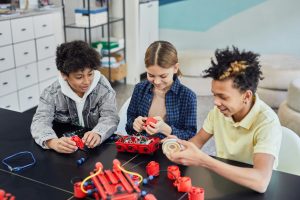Culturally Sustaining Pedagogies: Honoring Student Identities
Culturally sustaining pedagogies have become increasingly important in education as educators strive to create inclusive and equitable learning environments for all students. These pedagogies honor and value the unique identities of all students, promoting a sense of belonging and empowerment in the classroom. In this article, we will explore the concept of culturally sustaining pedagogies and how they can be implemented to celebrate and support student identities in the educational setting.
What are Culturally Sustaining Pedagogies?
Culturally sustaining pedagogies are instructional practices that promote and sustain the cultural identities of students. They go beyond traditional culturally responsive teaching, which focuses on acknowledging and incorporating the cultures of students into the curriculum. Instead, culturally sustaining pedagogies aim to empower students through the affirmation and validation of their diverse identities. These identities can include race, ethnicity, gender, language, religion, and many other factors that make each student unique.
The Importance of Honoring Student Identities
In our increasingly diverse society, it is crucial for educators to recognize and validate the identities of their students. When students feel seen and respected for who they are, they are more likely to engage and excel in their education. Honoring student identities also helps to create a safe and inclusive learning environment, where all students feel accepted and valued. This is especially important for marginalized students who may feel marginalized and excluded in the traditional educational system.
Strategies for Implementing Culturally Sustaining Pedagogies
There are various strategies that educators can use to implement culturally sustaining pedagogies in their classrooms. Some of these include:
1. Incorporate Diverse Perspectives in the Curriculum
One way to honor student identities is to include diverse perspectives and experiences in the curriculum. Instead of solely focusing on the dominant culture, educators can incorporate texts, stories, and resources from diverse backgrounds, cultures, and identities. This not only allows students to see themselves represented in the classroom but also exposes them to different ways of thinking and understanding the world.
2. Encourage Student Voice and Choice
Culturally sustaining pedagogies value the voices and experiences of students. As such, it is essential to create opportunities for students to share their perspectives and make choices in their learning. This can include student-led discussions, projects that allow for personal connections, and creative assignments that allow for different forms of expression.
3. Create a Respectful Classroom Community
To truly honor student identities, educators must foster a respectful and supportive classroom community. This means creating a space where all students feel safe to share their thoughts, ask questions, and challenge ideas. It is also important to address any instances of discrimination or bias that may occur in the classroom swiftly and appropriately.
4. Develop Genuine Relationships with Students
Building genuine relationships with students is a crucial aspect of culturally sustaining pedagogies. Students are more likely to feel valued and supported when they have trusting and positive relationships with their teachers. This can involve taking the time to get to know students individually, understanding their backgrounds and experiences, and showing empathy and support when needed.
In Conclusion
Culturally sustaining pedagogies are essential in creating inclusive and equitable learning environments for all students. By acknowledging and celebrating student identities, educators can empower their students and promote a sense of belonging in the classroom. By using strategies such as incorporating diverse perspectives, encouraging student voice and choice, building a respectful classroom community, and developing genuine relationships with students, educators can create a learning environment that honors and supports the diverse identities of their students.







